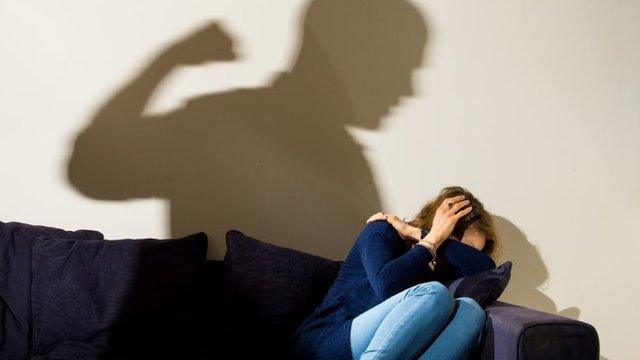Kent abused husband urges other men to get help
- Published
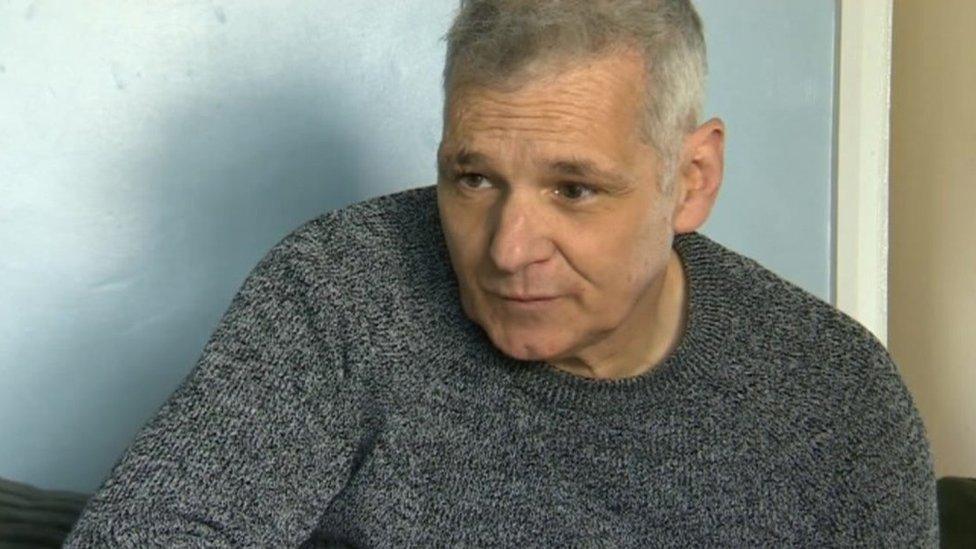
Tony Hannington survived attacks with hammers and knives and death threats
A Kent man whose wife was convicted of coercive control after a campaign of violence has spoken about his ordeal to encourage other victims to seek help.
Tony Hannington survived six years of abuse, including attacks with hammers and knives and death threats.
His wife, Tracey Hannington, admitted ABH and controlling and coercive behaviour before magistrates in Thanet.
The 58-year-old from Herne Bay was sentenced at Canterbury Crown Court and jailed for two years in October 2019.

Tracey Hannington was jailed for two years after pleading guilty to ABH and coercive behaviour
Mr Hannington, of Canterbury, said: "There was one time when we were in the hallway and she put a knife to the side of my neck and that's when she brought it down.
"I thought she was going to stick me in the stomach, so I brought my hand down to protect my stomach and it went in my hand."
He said her coercive behaviour included telling him who he could speak to, who he couldn't speak to, controlling what he ate, telling him what to wear and even when he could have a shower.
He told the BBC he wanted other men in a similar situation to feel they could get help.
Coercive behaviour became a crime in 2015, external.
According to the charity for male domestic abuse victims, ManKind, external, more than a quarter of domestic abuse victims last year were men.
Figures for the same year show that about 757,000 men experienced domestic abuse, but 49% of male victims do not tell anyone they are a victim.
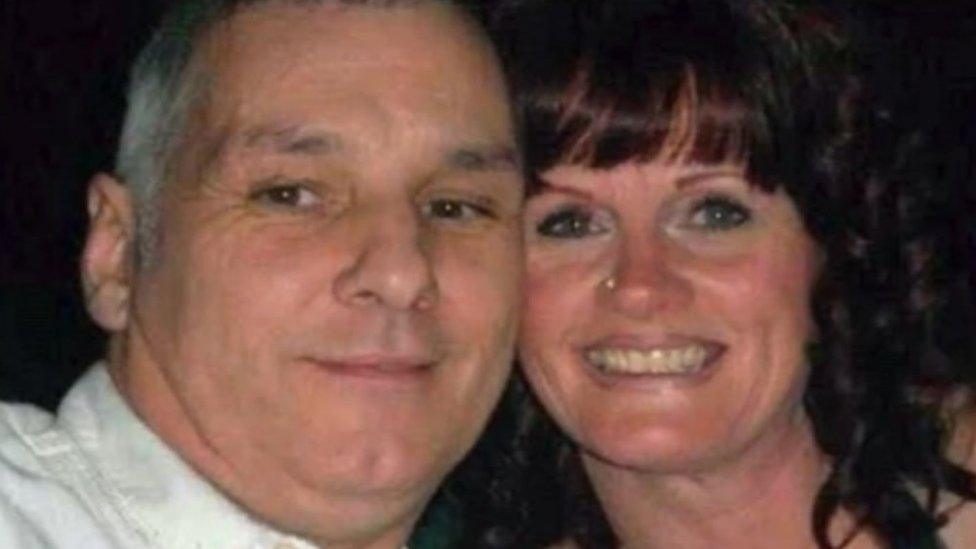
Their marriage led to six years of physical and verbal abuse
Ippo Panteloudakis, from the domestic abuse charity Respect, external, said: "Men are more likely to suffer in silence because they haven't fully accepted that a man can be a victim of domestic abuse.
"When it does happen to a man, it doesn't have a point of reference, which is more common for women. That results in men being more isolated and less likely to ask for help."
Det Ch Supt Andy Pritchard, from Kent Police, said abuse carried out by women was different to abuse carried out by men.
"We might see more control and coercion, more elements of psychological and emotional abuse, where the perpetrator is female," he said. "We also see more extreme levels of abuse occasionally from female to male."

Follow BBC South East on Facebook, external, on Twitter, external, and on Instagram, external. Send your story ideas to southeasttoday@bbc.co.uk.
Related topics
- Published30 November 2019
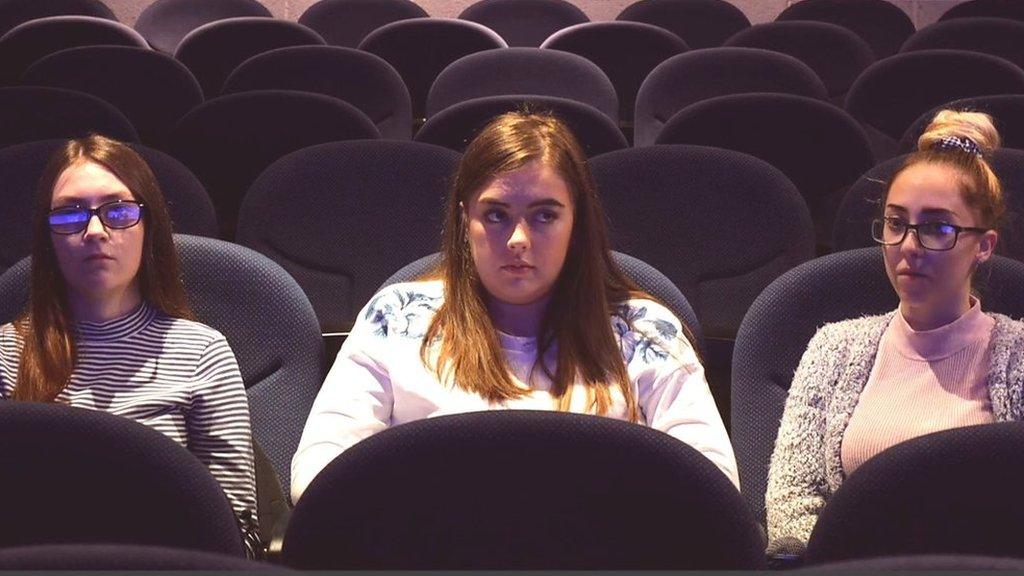
- Published26 November 2018

- Published7 December 2017
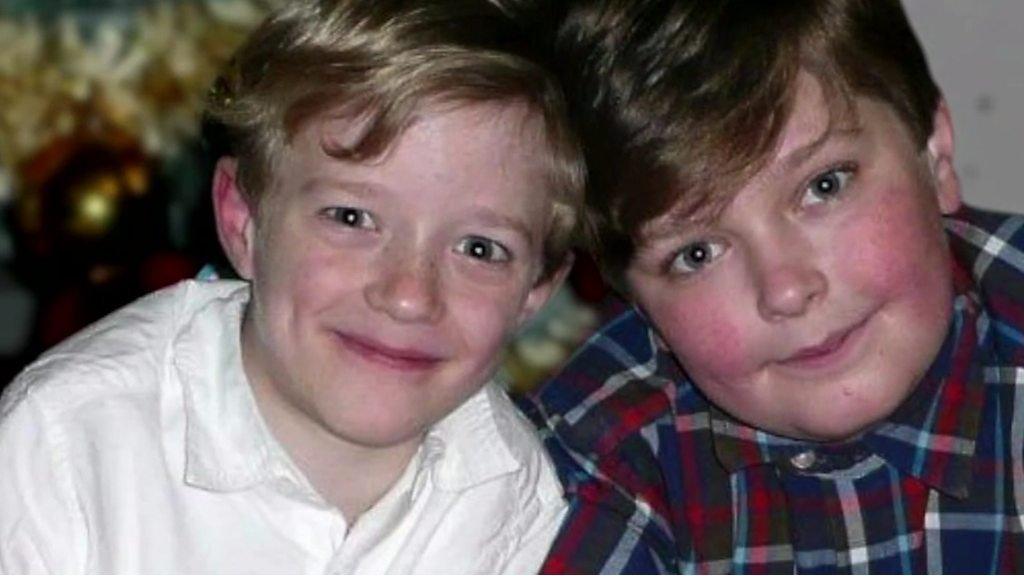
- Published29 December 2015
